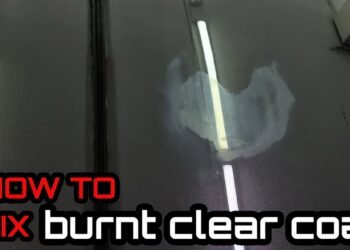When it comes to your vehicle’s health, every detail counts — even something as seemingly simple as the size of your oil filter. You might be wondering, does oil filter size really matter?
The answer isn’t just a yes or no. Choosing the right size can impact your engine’s oil pressure, filtration efficiency, and overall performance. Using a filter that’s too small or too large could lead to leaks, reduced oil flow, or even engine damage.
But what if a bigger filter could actually improve how well your engine stays clean and runs smoothly? Keep reading to uncover how the size of your oil filter affects your car, what benefits a larger filter might offer, and what you need to watch out for to make the best choice for your ride. This knowledge could save you money, extend engine life, and give you peace of mind every time you hit the road.
Oil Filter Size Basics
Understanding the basics of oil filter size helps you maintain your vehicle properly. The size of an oil filter affects how well it fits and functions. Choosing the right size ensures your engine stays clean and runs smoothly. Let’s explore the standard dimensions and common size variations of oil filters.
Standard Dimensions
Most oil filters follow standard dimensions set by manufacturers. These dimensions include height, diameter, and thread size. The height usually ranges from 2 to 4 inches. Diameter varies but commonly falls between 2.5 to 3.5 inches. Thread size must match the engine’s filter mount for a secure fit. Standard sizes make it easier to find replacement filters. Using the correct size prevents leaks and pressure loss.
Common Size Variations
Oil filters come in many size variations depending on vehicle type. Some are smaller for compact cars. Larger filters fit trucks and heavy-duty vehicles. Variations also appear in thread pitch and gasket size. Some filters have a wider surface area for better filtration. These differences affect oil flow and dirt-trapping ability. Choosing a size that matches your engine’s needs improves performance. Size variations allow better options for different engines and driving conditions.

Credit: www.reddit.com
Effects On Oil Pressure
The size of an oil filter can impact the oil pressure in your engine. Oil pressure is crucial because it ensures all moving parts get the lubrication they need. Changes in filter size may cause shifts in how oil flows through the system. Understanding these effects helps maintain engine health and performance.
Pressure Changes With Size
Smaller oil filters often create higher pressure because oil flows through less filter media. Larger filters offer more surface area, which can lower resistance and reduce pressure drops. This means oil moves more freely with a bigger filter. Low pressure may cause oil to bypass the filter, reducing protection. High pressure can strain the oil pump and seals. The right size balances flow and pressure for optimal engine care.
Bypass Valve Role
The bypass valve prevents oil starvation if the filter clogs or pressure drops too low. It opens to let unfiltered oil circulate in emergencies. Different filter sizes may have different bypass valve settings. If the valve opens too early, dirty oil can damage the engine. If it opens too late, the engine may suffer from low oil flow. Matching the bypass valve pressure to your engine’s needs is vital for safety and performance.
Benefits Of Larger Filters
Larger oil filters bring several advantages that enhance engine protection and performance. They offer more space for filtering media, which helps capture more dirt and particles. This improvement leads to longer oil life and better engine health.
Choosing a larger filter can also improve oil flow and help regulate engine temperature. These benefits contribute to smoother engine operation and reduced wear over time.
Increased Filter Media
A bigger oil filter contains more filter media. This means it can trap more contaminants before clogging. Engines stay cleaner, and oil remains effective longer. More filter media reduces the risk of harmful particles circulating in the engine.
Extended Oil Change Intervals
With a larger filter, oil changes can happen less often. The filter holds more dirt and particles, which slows down oil degradation. This saves time and money on maintenance. The engine also enjoys longer protection between oil changes.
Improved Oil Flow
Larger filters allow oil to flow with less resistance. More filter surface means oil moves smoothly through the media. This reduces strain on the oil pump and keeps oil pressure steady. Better flow means the engine parts get clean oil faster.
Better Heat Regulation
A bigger filter can help control engine heat. It increases the total oil volume, which absorbs and disperses heat better. Cooler oil keeps the engine running efficiently and prevents overheating. This helps extend engine life and performance.

Credit: www.reddit.com
Risks Of Incorrect Size
Using the wrong oil filter size can cause serious problems for your engine. It is not just about fitting the part. The wrong size leads to risks that affect oil flow and engine safety. Understanding these risks helps avoid costly repairs and keeps your vehicle running smoothly.
Oil Leakage Issues
An oil filter that is too large or too small often fails to seal properly. This failure causes oil to leak from the filter connection. Oil leaks reduce the amount of oil reaching the engine parts. This can lead to low oil levels and poor lubrication, harming engine performance.
Poor Seal And Fitment
Incorrect filter size can cause poor fitment between the filter and engine. A filter that does not fit tightly can move or vibrate during driving. This movement breaks the seal and allows contaminants to enter the oil system. Dirt and debris in the oil increase engine wear and reduce its lifespan.
Engine Damage Potential
Using the wrong oil filter size puts the engine at risk of damage. Insufficient oil flow causes parts to overheat and wear quickly. The engine may suffer from increased friction and possible failure. Choosing the correct filter size ensures proper oil circulation and protects the engine from harm.
Fitment And Compatibility
Fitment and compatibility are key when choosing the right oil filter size. An oil filter must fit the engine perfectly to avoid leaks and maintain proper oil pressure. Wrong fitment can lead to engine damage or poor filtration. Understanding the details of fitment helps ensure the filter works well with your vehicle.
Thread Pitch Matching
The thread pitch on an oil filter must match the engine’s mounting threads. Thread pitch means the distance between threads. A mismatch can cause cross-threading or leaks. Always verify the thread pitch before buying a filter. This ensures a secure and tight fit on the engine.
Gasket Size Importance
The gasket creates a seal between the oil filter and engine. Gasket size and thickness must be correct. Too small or thin, and oil can leak out. Too large, and the filter may not screw on properly. A good gasket size keeps oil inside and prevents contamination.
Physical Space Constraints
Space around the filter mounting area affects filter size choice. Some engines have tight spaces that limit filter size. A larger filter might not fit or could touch hot engine parts. Measure the available space carefully before choosing a bigger filter. Proper clearance avoids damage and ensures easy filter changes.
Choosing The Right Filter
Selecting the correct oil filter is important for your engine’s health. The right filter keeps oil clean and supports proper flow. Using the wrong size can cause leaks or pressure problems. Size matters, but so do other factors like fit and function. Understanding these points helps you pick the best filter.
Manufacturer Recommendations
Car makers design filters to match their engines. They test sizes for best performance and safety. Always check the owner’s manual for recommended filter size. This ensures the filter fits well and works with your oil system. Using the exact size helps avoid damage and keeps warranty valid.
Aftermarket Options
Many brands offer filters that fit your vehicle. These can be cheaper or have extra features. Check if aftermarket filters meet quality standards and match specs. Read user reviews and ratings before buying. A good aftermarket filter must seal properly and maintain oil pressure.
Oversized Filter Considerations
Bigger filters hold more dirt and may last longer. They can improve oil flow and reduce clogging risks. Still, size must not block space or touch hot parts. The bypass valve pressure must match your engine’s needs. Always test fit an oversized filter to avoid leaks or damage.
Maintenance Tips
Proper maintenance of your oil filter is crucial for engine health. Regular care helps the filter perform efficiently and extends engine life. Follow these maintenance tips to keep your oil filter in top condition.
Regular Inspection
Check your oil filter at every oil change. Look for signs of leaks or damage around the filter. Make sure the filter is clean and free from dirt. Inspect the seal to ensure it is intact and not cracked. Early detection of issues prevents engine problems.
Proper Installation Techniques
Use the correct oil filter size for your engine. Hand-tighten the filter firmly but avoid over-tightening. Apply a thin layer of oil to the filter gasket before installation. This helps create a good seal and makes removal easier. Double-check the filter is seated properly before starting the engine.
Signs Of Filter Problems
Watch for reduced engine performance or strange noises. Oil leaks near the filter indicate a poor seal or damage. Dark, dirty oil may mean the filter is clogged. An illuminated oil pressure warning light can signal filter issues. Address these signs promptly to avoid engine damage.

Credit: forums.pelicanparts.com
Frequently Asked Questions
Is It Better To Use A Bigger Oil Filter?
Using a bigger oil filter can improve dirt-holding capacity and oil flow. Ensure it fits correctly and matches engine specs to avoid leaks or pressure issues.
What Happens If You Put The Wrong Size Oil Filter On?
Using the wrong size oil filter can cause leaks, poor sealing, and oil pressure issues. It may damage the engine or reduce filtration efficiency. Always use the correct filter size to ensure proper fit, maintain oil flow, and protect engine health.
Does The Size Of My Oil Filter Matter?
Yes, oil filter size matters. A larger filter holds more dirt and improves oil flow but must fit correctly and match engine specs to avoid leaks or pressure issues.
Does Oil Filter Size Affect Oil Pressure?
Oil filter size can affect oil pressure if it alters flow or bypass valve function. Correct fit and valve pressure ensure proper oil pressure. Larger filters may improve flow and dirt capacity but must match engine specifications to avoid pressure issues or leaks.
Does Oil Filter Size Affect Engine Performance?
Yes, the filter size can impact oil flow and dirt-trapping, influencing engine health and efficiency.
Conclusion
Choosing the right oil filter size matters for your engine’s health. A larger filter can hold more dirt and improve oil flow. Still, it must fit well and match your engine’s needs. Poor fit or wrong pressure can cause leaks or damage.
Always pick a filter that fits securely and works with your car. This keeps your engine clean and running smoothly. Small details like size affect long-term performance and protection. Remember, the best filter size balances capacity, fit, and your engine’s design.

















